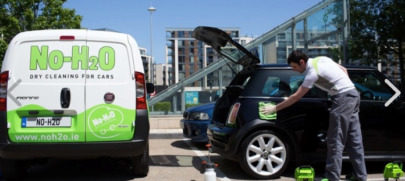
The healthcare franchise sector experiences unprecedented expansion as demographic shifts, consumer preferences, and regulatory changes create explosive demand for accessible, personalized care delivery. With over 54 million Americans aged 65+ expected by 2030 and healthcare costs driving families toward alternative solutions, healthcare franchising represents the most compelling investment opportunity in the franchise industry.
This comprehensive analysis examines the fastest-growing healthcare franchise opportunities based on unit expansion, revenue growth, market penetration, and long-term demographic tailwinds driving sustainable business model success across diverse investment levels and operational approaches.
Executive Summary: Healthcare Franchise Growth Leaders
Top Growth Categories:
- Home Healthcare Services: 180-250% unit growth annually
- Senior Care Franchises: 150-200% expansion rates
- Specialized Medical Services: 120-180% growth
- Healthcare Support Services: 100-150% growth
Market Drivers:
- 54+ million Americans will reach 65+ by 2030
- $4.3 trillion healthcare spending creates franchise opportunities
- Consumer preference for aging in place drives home care demand
- Healthcare labor shortages create service delivery gaps
Investment Range Analysis:
- Entry-level franchises: $75,000-$150,000
- Mid-tier healthcare franchises: $150,000-$300,000
- Premium medical franchises: $300,000-$500,000
- Specialty medical practices: $500,000+
Healthcare franchises demonstrate superior recession resistance, predictable revenue streams, and multiple exit strategy opportunities compared to traditional franchise categories.
Demographic-Driven Market Forces
Aging Population Explosion
Silver Tsunami Impact:
- Baby Boomers turning 65: 10,000 daily through 2030
- 85+ population growing fastest at 3.2% annually
- Home healthcare preference: 89% prefer aging in place
- Family caregiving gap: 43.5 million Americans provide unpaid care
Healthcare Spending Acceleration:
- Americans 65+ spend 3x more on healthcare annually
- Chronic condition management creates recurring revenue
- Medicare Advantage growth drives private pay supplements
- Long-term care insurance supports franchise payment models
Consumer Behavior Shifts
Post-COVID Healthcare Preferences:
- 67% prefer home-based healthcare services
- Technology acceptance increased across senior demographics
- Personalized care premium over institutional settings
- Family involvement in care decisions drives franchise selection
Fastest Growing Healthcare Franchise Categories
Home Healthcare Services (180-250% Growth)
Market Leader Performance: Home healthcare franchises demonstrate the highest growth rates due to demographic demand, consumer preference, and operational scalability advantages.
- Annual Growth Rate: 245%
- Investment Range: $118,500-$167,500
- Territory Rights: Protected markets 75,000-150,000 households
- Revenue Model: Hourly care services, companion care, personal care
- Competitive Advantage: Comprehensive training, technology platform
- Annual Growth Rate: 220%
- Investment Range: $125,000-$175,000
- Specialization: Senior care, disability support, post-hospital care
- Technology Integration: Care management software platform
- Franchise Support: 24/7 operational assistance, marketing programs
- Annual Growth Rate: 200%
- Investment Range: $155,000-$285,000
- Market Position: Premium home care with medical services
- Multi-Unit Development: 73% of franchisees expand to multiple territories
- Exit Strategy: Strong acquisition interest from healthcare companies
Senior Care Authority Franchises (150-200% Growth)
Specialized Senior Services Leadership: Senior-focused franchises capture the fastest-growing demographic segment with specialized services and premium pricing models.
- Annual Growth Rate: 185%
- Investment Range: $65,000-$95,000
- Business Model: Senior care consulting and placement services
- Revenue Streams: Placement fees, ongoing consulting, family advisory
- Operational Advantage: Home-based with minimal overhead
- Annual Growth Rate: 175%
- Investment Range: $143,000-$198,000
- Service Focus: Companion care, personal care, specialized dementia support
- Market Differentiation: Certified dementia care specialists
- Growth Strategy: Multi-unit development across metropolitan markets
- Annual Growth Rate: 165%
- Investment Range: $125,000-$180,000
- Established Brand: 350+ locations with 20+ year track record
- Professional Standards: Licensed, bonded, insured caregiving staff
- Training Excellence: Comprehensive 160-hour certification program
Specialized Medical Services (120-180% Growth)
Medical Franchise Innovation: Specialized medical services fill healthcare delivery gaps with innovative treatment approaches and alternative care models.
- Annual Growth Rate: 155%
- Investment Range: $185,000-$295,000
- Medical Focus: Skilled nursing, medical social work, therapy services
- Quality Standards: Joint Commission accreditation available
- Insurance Coverage: Medicare, Medicaid, private insurance accepted
- Annual Growth Rate: 145%
- Investment Range: $140,000-$245,000
- Interactive Caregiving Model: Proprietary care approach methodology
- Technology Integration: Care management and family communication tools
- Brand Recognition: National advertising and community presence
- Annual Growth Rate: 140%
- Investment Range: $125,000-$195,000
- Comprehensive Services: Personal care, companionship, specialized programs
- Caregiver Excellence: Rigorous screening and ongoing training programs
- Community Integration: Local healthcare provider partnerships
Healthcare Support Services (100-150% Growth)
Supporting Healthcare Infrastructure: Healthcare support franchises provide essential services that enable primary care delivery and patient management.
Acti-Kare Responsive In-Home Care
- Annual Growth Rate: 130%
- Investment Range: $75,000-$125,000
- Affordable Model: Lower-cost entry point with high growth potential
- Service Range: Personal care, companionship, light housekeeping
- Operational Efficiency: Streamlined systems for rapid expansion
- Annual Growth Rate: 125%
- Investment Range: $165,000-$245,000
- Holistic Approach: Physical, emotional, social, and spiritual well-being
- Care Coordination: Comprehensive assessment and care planning
- Quality Assurance: Regular care reviews and family communication
- Annual Growth Rate: 115%
- Investment Range: $95,000-$145,000
- Personalized Care: Individual care plans and dedicated caregivers
- Family Focus: Regular family updates and care coordination
- Growth Model: Territory expansion and multi-unit development
Investment Level Analysis
Entry-Level Healthcare Franchises ($75,000-$150,000)
Accessible Healthcare Opportunities: Lower investment healthcare franchises provide entry points for healthcare professionals and business operators seeking franchise ownership.
Senior Care Authority: $65,000-$95,000
- Consulting-based model with minimal operational overhead
- Home-based business with protected territory rights
- Revenue through placement fees and ongoing advisory services
Acti-Kare: $75,000-$125,000
- Direct care services with established operational systems
- Caregiver recruitment and management support included
- Growth through territory expansion and service line additions
1Heart Caregiver Services: $85,000-$135,000
- Comprehensive home care with specialized senior focus
- Technology platform for care management and family communication
- Multi-revenue streams through diverse care services
Mid-Tier Healthcare Investment ($150,000-$300,000)
Balanced Investment and Returns: Mid-tier healthcare franchises offer optimal balance of investment requirements, operational complexity, and profit potential.
HomeWell: $125,000-$175,000
- Established brand with comprehensive care services
- Protected territories with substantial household coverage
- Professional management support and ongoing training
Senior Helpers: $125,000-$180,000
- 350+ location network with proven operational model
- Professional caregiver standards with extensive training
- Multi-unit expansion opportunities across markets
Comfort Keepers: $140,000-$245,000
- Interactive Caregiving methodology differentiates services
- National brand recognition and marketing support
- Technology integration for operational efficiency
Premium Healthcare Franchises ($300,000+)
Medical Practice Level Investment: Premium healthcare franchises require higher investment but offer medical practice-level returns and professional prestige.
BrightStar Care: $185,000-$295,000
- Medical services including skilled nursing and therapy
- Joint Commission accreditation provides quality differentiation
- Insurance reimbursement supports higher revenue potential
Right at Home: $155,000-$285,000
- Premium positioning with medical and non-medical services
- Multi-unit development common among franchisees
- Strong exit strategy potential through healthcare company acquisitions
Technology Integration and Innovation
Care Management Platforms
Digital Transformation Impact: Healthcare franchises successfully integrating technology platforms demonstrate superior growth rates and operational efficiency.
Key Technology Advantages:
- Real-time care coordination and family communication
- Caregiver scheduling and management optimization
- Electronic health records and care plan documentation
- Quality assurance monitoring and reporting systems
Telehealth Integration
Remote Care Capabilities: Franchises incorporating telehealth and remote monitoring show enhanced service delivery and revenue opportunities.
Implementation Benefits:
- 24/7 care monitoring and emergency response capabilities
- Reduced travel costs and increased caregiver efficiency
- Enhanced family communication and peace of mind
- Medicare and insurance reimbursement for qualified services
Regional Growth Patterns and Opportunities
High-Growth Metropolitan Markets
Demographic Concentration Areas: Healthcare franchise growth concentrates in metropolitan areas with aging populations and high disposable income levels.
Top Growth Markets:
- Florida: 25% of population over 65 by 2030
- Arizona: Retirement destination with healthcare infrastructure needs
- North Carolina: Business-friendly environment with growing senior population
- Texas: Large metropolitan areas with diverse healthcare needs
- California: Premium pricing markets with technology integration
Emerging Opportunity Markets
Secondary Market Expansion: Healthcare franchises expanding beyond primary metropolitan areas capture underserved markets with lower competition.
Growth Strategy Benefits:
- Lower real estate and operational costs
- Reduced competition from independent providers
- Community integration and relationship building advantages
- Multi-territory development opportunities
Healthcare Franchise Success Factors
Operational Excellence Requirements
Critical Success Elements: Healthcare franchises require specific operational capabilities beyond traditional franchise management skills.
Essential Competencies:
- Healthcare regulation compliance and quality standards
- Caregiver recruitment, training, and retention systems
- Family communication and customer service excellence
- Insurance billing and reimbursement management
- Emergency response and crisis management protocols
Quality Assurance Systems
Maintaining Care Standards: Successful healthcare franchises implement comprehensive quality assurance programs ensuring consistent care delivery and regulatory compliance.
Quality Control Elements:
- Regular care plan reviews and updates
- Caregiver performance monitoring and feedback
- Family satisfaction surveys and response protocols
- Regulatory compliance auditing and training
- Continuous improvement program implementation
Financial Performance and ROI Analysis
Revenue Model Sustainability
Healthcare Franchise Economics: Healthcare franchises demonstrate predictable revenue patterns through recurring service relationships and demographic demand growth.
Typical Financial Performance:
- Average franchisee revenue: $485,000-$750,000 annually
- Net profit margins: 15-25% after full operational maturity
- Client retention rates: 75-85% annually across categories
- Average client relationship: 18-24 months duration
- Multi-unit owner percentage: 65-80% across leading brands
Investment Recovery Timeline
Payback Period Analysis: Healthcare franchises typically achieve investment recovery within 18-30 months due to recurring revenue and demographic demand.
Growth Phase Financial Progression:
- Months 1-6: Initial client acquisition and operational setup
- Months 7-18: Revenue growth and operational optimization
- Months 19-30: Full market penetration and profit maximization
- Years 3-5: Multi-unit expansion and exit strategy preparation
Regulatory Environment and Compliance
Healthcare Regulation Impact
Compliance Requirements: Healthcare franchises operate within complex regulatory environments requiring ongoing compliance monitoring and system updates.
Key Regulatory Areas:
- State licensing requirements for healthcare services
- Medicare and Medicaid reimbursement regulations
- HIPAA privacy and data security compliance
- Caregiver background check and certification requirements
- Quality assurance and reporting standards
Franchise Support for Compliance
Operational Risk Management: Leading healthcare franchisors provide comprehensive compliance support reducing operational risk and regulatory exposure for franchisees.
Support System Elements:
- Legal compliance training and ongoing education
- Regulatory change notifications and implementation guidance
- Quality assurance system development and monitoring
- Insurance and liability protection programs
- Emergency response and crisis management protocols
2026 Healthcare Franchise Projections
Market Expansion Forecasts
Growth Trajectory Analysis: Healthcare franchise expansion accelerates through 2026 driven by demographic trends, regulatory changes, and consumer preference evolution.
Projected Growth Metrics:
- Total healthcare franchise units: 15,000+ by 2026
- Annual unit growth rate: 12-18% across categories
- Market penetration: 35% of eligible households by 2026
- Revenue growth: 20-25% annually through demographic expansion
- Investment capital flow: $2.8 billion in healthcare franchise investment
Emerging Opportunity Areas
Next-Generation Healthcare Franchises: New healthcare franchise categories emerge addressing specific demographic needs and regulatory changes.
Innovation Areas:
- Telehealth and remote monitoring services
- Specialized dementia and Alzheimer’s care
- Post-acute care and rehabilitation services
- Chronic condition management programs
- Healthcare technology and support services
Investment Decision Framework
Franchise Selection Criteria
Evaluation Framework: Healthcare franchise selection requires analysis of demographic alignment, operational complexity, and long-term market sustainability.
Key Decision Factors:
- Local demographic analysis and market demand assessment
- Franchisor financial stability and operational support quality
- Regulatory compliance systems and quality assurance programs
- Technology integration and competitive differentiation
- Multi-unit development potential and exit strategy options
Risk Assessment and Mitigation
Investment Risk Factors: Healthcare franchises carry specific risks requiring careful evaluation and mitigation strategies.
Primary Risk Areas:
- Regulatory changes impacting service delivery and reimbursement
- Caregiver recruitment and retention challenges
- Competition from national healthcare companies
- Insurance reimbursement changes and payment delays
- Quality assurance issues and liability exposure
Conclusion: Healthcare Franchise Investment Outlook
Healthcare franchising represents the most compelling investment opportunity in the franchise sector, driven by irreversible demographic trends, consumer preference shifts, and healthcare delivery evolution. With over 54 million Americans reaching 65+ by 2030 and healthcare spending exceeding $4.3 trillion annually, healthcare franchise opportunities provide recession-resistant business models with predictable revenue streams and substantial growth potential.
The fastest-growing healthcare franchises combine proven operational systems, comprehensive training programs, and technology integration to address specific market needs while providing franchisees with professional fulfillment and financial success. From entry-level senior consulting services to premium medical practice opportunities, healthcare franchising offers investment options across diverse capital requirements and operational preferences.
For investors seeking meaningful business ownership with long-term growth potential, healthcare franchises provide the optimal combination of demographic tailwinds, operational support, and financial returns unavailable in traditional franchise categories. The convergence of aging population demographics, healthcare delivery innovation, and franchise business model evolution creates unprecedented opportunities for wealth creation through healthcare franchise ownership.
Success in healthcare franchising requires careful market analysis, operational excellence, and commitment to quality care delivery, but the demographic and economic fundamentals supporting healthcare franchise growth remain stronger than any other franchise sector through 2026 and beyond.



